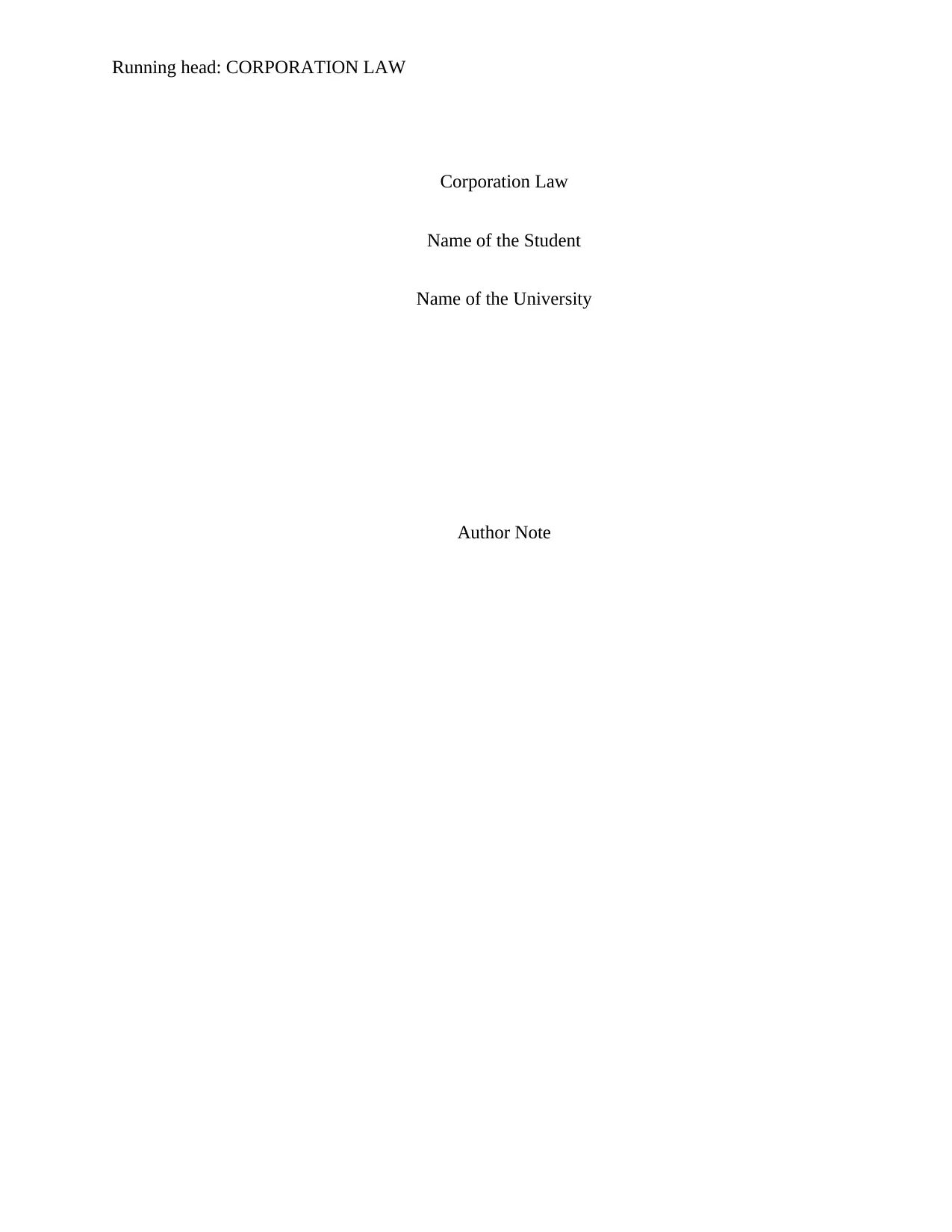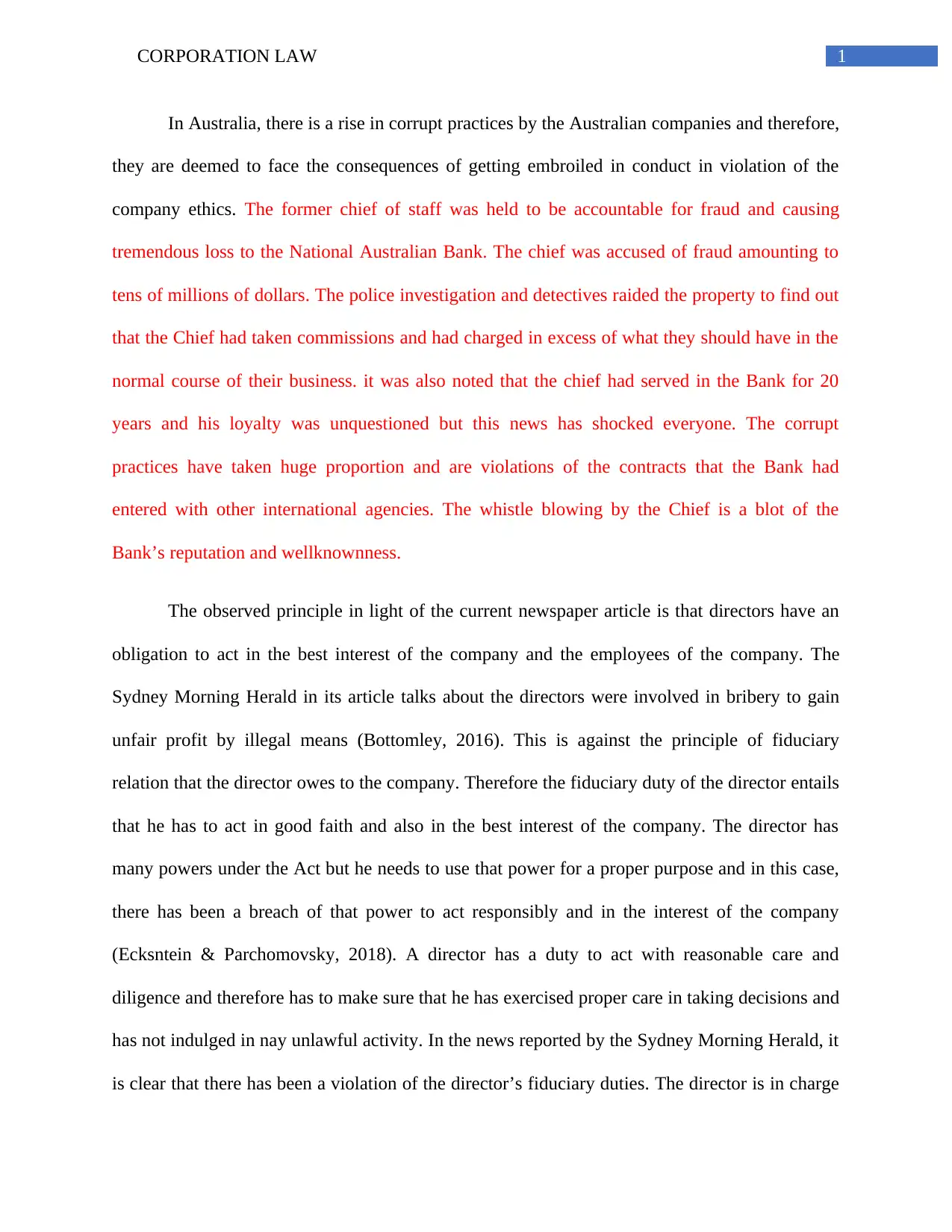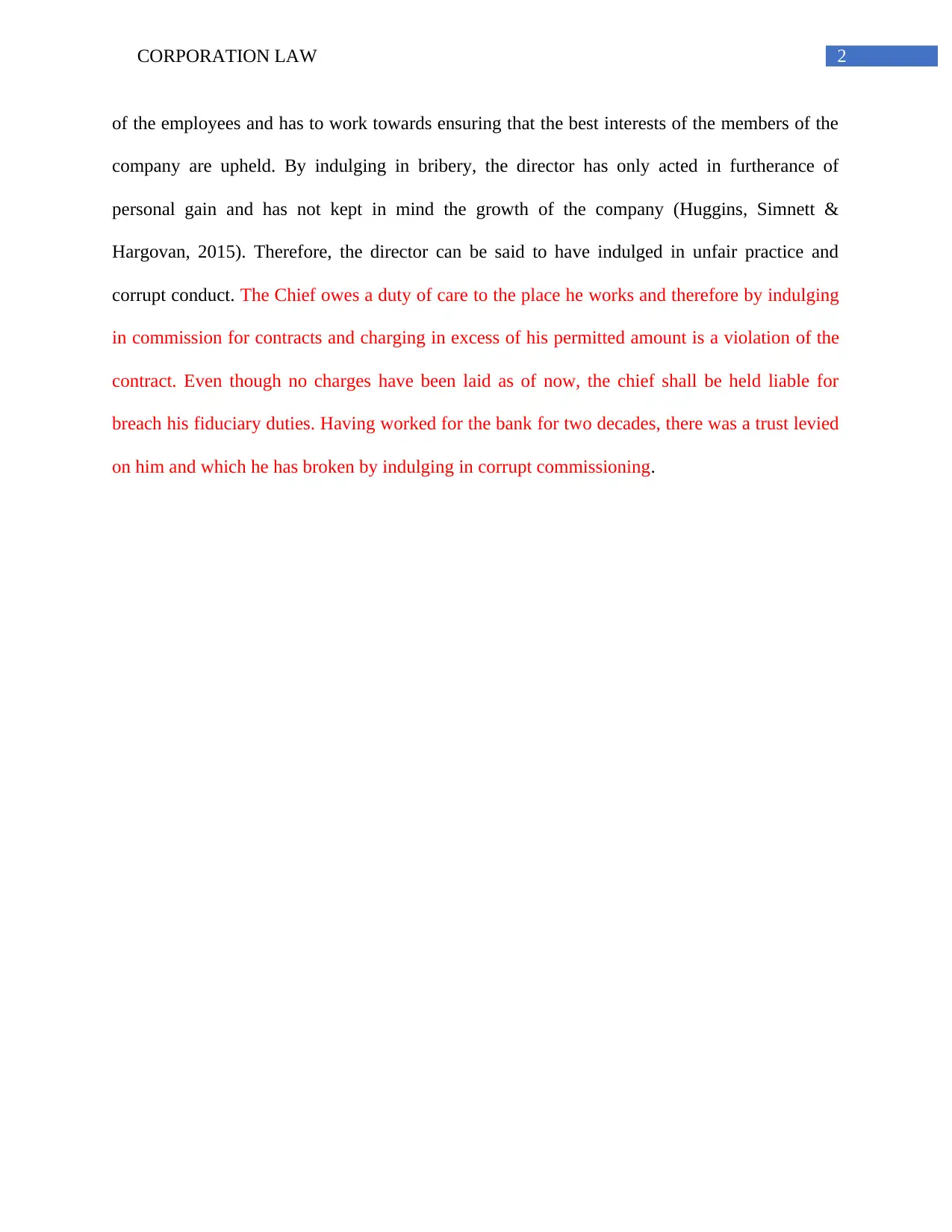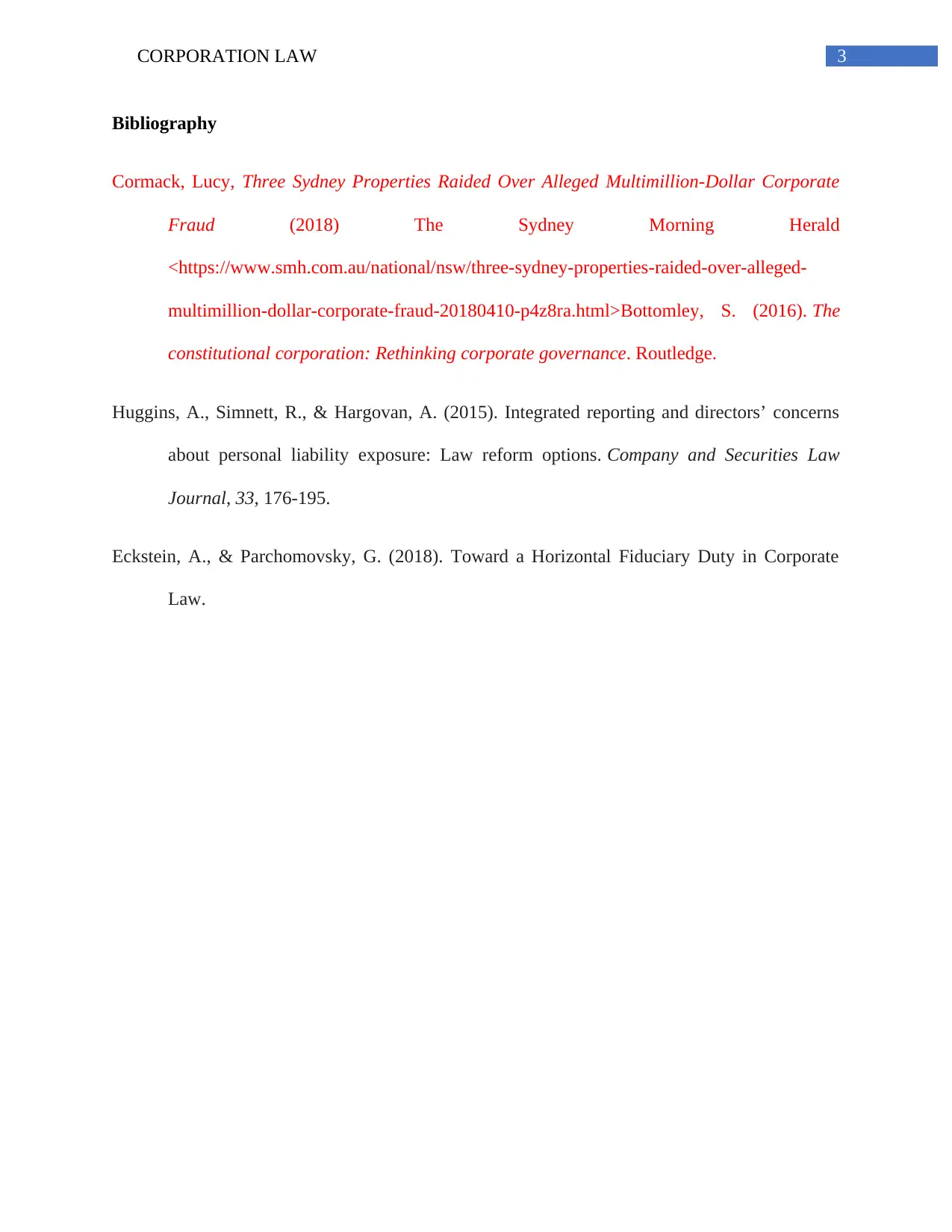Australian Corporation Law: Analysis of Corporate Fraud & Ethics
VerifiedAdded on 2023/06/12
|4
|687
|460
Case Study
AI Summary
This case study analyzes a recent Australian newspaper article concerning corporate fraud, specifically focusing on the fiduciary duties of directors and the ethical responsibilities within Australian companies. The analysis highlights the breach of fiduciary duty by a former chief of staff at the National Australian Bank, who was accused of fraud involving millions of dollars. The study relates the news report to the legal principles covered in Corporation Law, particularly the obligation of directors to act in the best interest of the company and its employees. The case underscores the importance of directors upholding their fiduciary duties, acting in good faith, and avoiding conflicts of interest or personal gain at the expense of the company's well-being. The analysis concludes that the chief's actions constitute a violation of his duty of care and loyalty, potentially leading to liability for breach of fiduciary duties, despite the absence of formal charges at the time of the article.
1 out of 4











![[object Object]](/_next/static/media/star-bottom.7253800d.svg)